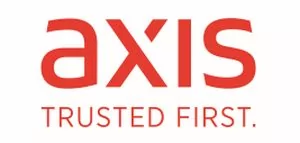A Introduction
On 29 July 2022, the Mauritian Parliament passed the Finance (Miscellaneous) Provisions Act 2022 (the "FA 2022"), which enacts into law the measures announced by the Honourable Minister of Finance in the Budget Speech 2022-2023.
In line with the Budget Speech, the FA 2022 displays a strong social element aimed at alleviating hardships suffered by the lower and middle classes as the country gradually comes out of the economic crisis caused by the Covid-19 pandemic but faces the new challenge of rising inflation resulting from the Russia-Ukraine war and depreciation of the rupee. In parallel, the FA 2022 strengthens the regulatory landscape as part of the ongoing efforts to keep Mauritius a compliant jurisdiction following its removal from the EU anti-money laundering blacklist, whilst at the same time enacting some environment-friendly measures
Below is an overview of key measures in the FA 2022 that will impact businesses – it does not purport to be a comprehensive coverage of all of the FA 2022's provisions and should not be construed as being legal advice.
B TAXATION
VAT
Tax administration
Effective as from 03 October 2022, the Mauritius Revenue Authority (the "MRA") will be empowered to register a taxable person where the latter has failed to apply for compulsory registration, to publish a list of VAT-registered persons and to publish the name of a VAT-registered person who has failed to submit a VAT return.
Also as from 03 October 2022, where a person fails to submit information, books or records requested by the MRA, the latter may determine that the taxable person's objection to an assessment has lapsed. Where an appeal is then made to the Assessment Review Committee (the "ARC"), the taxable person will not be allowed to submit such information, books or records before the ARC.
Upon the death of a taxable person, the agent of the deceased will now be liable to file VAT returns and pay any VAT due by the deceased. An agent includes:
- An heir who accepts the succession of the taxable person;
- A surviving spouse;
- An executor or liquidator of the deceased person's succession.
An agent who is registered for VAT should charge VAT on goods made available to him under consignment in his own name. Any VAT collected should thereafter be remitted by that agent to the MRA. In case where a sale of goods is made in the name of the principal, VAT shall be charged by the agent in the name of the principal.
The MRA will introduce an e-invoicing system whereby a VAT-registered person, subject to certain conditions, will be required to connect to the system to issue fiscal invoices system to customers. Failure to issue invoices through the system will entail a penalty ranging from Rs 10,000 up to Rs 200,000.
VAT refunds
The regime for VAT refunds has been relaxed as follows:
- VAT refunds to event organizers registered with the Economic Development Board (the "EDB") on accommodation costs have been revised to events having a minimum of 50 visitors instead of 100 visitors;
- VAT refunds on approved items have been extended to groups of small farmers provided that their annual turnover does not exceed Rs 10 million and they are registered with the Small Farmers Welfare Fund; and
- Previously, one of the criteria to be eligible for VAT refund on a residential building, house or apartment was the cost of the construction or purchase price not exceeding Rs 3 million. This threshold has now been replaced by the floor area of the residential building, house or apartment in accordance with the approved Building and Land Use Permit issued under the Local Government Act not exceeding 1,800 square feet.
Exemptions
The list of zero-rated supplies has been extended to include diagnostic or laboratory reagents.
A person operating a museum for motor vehicles and holding an investment certificate issued by the EDB will be exempted from VAT on qualified items.
Income Tax
Administration
Tax deduction at source has been extended to cover consultancy services, security and cleaning services, pest management services and payment made by insurance companies to motor surveyors and mechanics for repairs of motor vehicles of policyholders.
An individual liable to the solidarity levy and deriving pension or director's fees is given the option to request the person responsible for the payment to deduct the Pay As You Earn (PAYE) for the solidarity levy at the rate of 10% or 25%.
The MRA may request information from a foundation or trust to enable it to make an assessment, collect tax or comply with any request for the exchange of information under a Double Taxation Avoidance Agreement.
The MRA will be allowed to share information to the Gambling Regulatory Authority for assessing an application made by a person.
The MRA can publish on its website the name of companies not having filed their income tax returns.
Competent authorities will be allowed to enter into arrangements with the government of a foreign country for:
- alternative dispute resolution with a view to resolving cross border tax disputes; and
- implementing the internationally agreed standards to prevent base erosion and profit shifting.
Global Minimum Tax
A Qualified Domestic Minimum Top-Up Tax will be introduced to companies resident in Mauritius forming part of multinational enterprise group having a global annual revenue of more than EUR 750 million.
To read the full article click here
The content of this article is intended to provide a general guide to the subject matter. Specialist advice should be sought about your specific circumstances.

